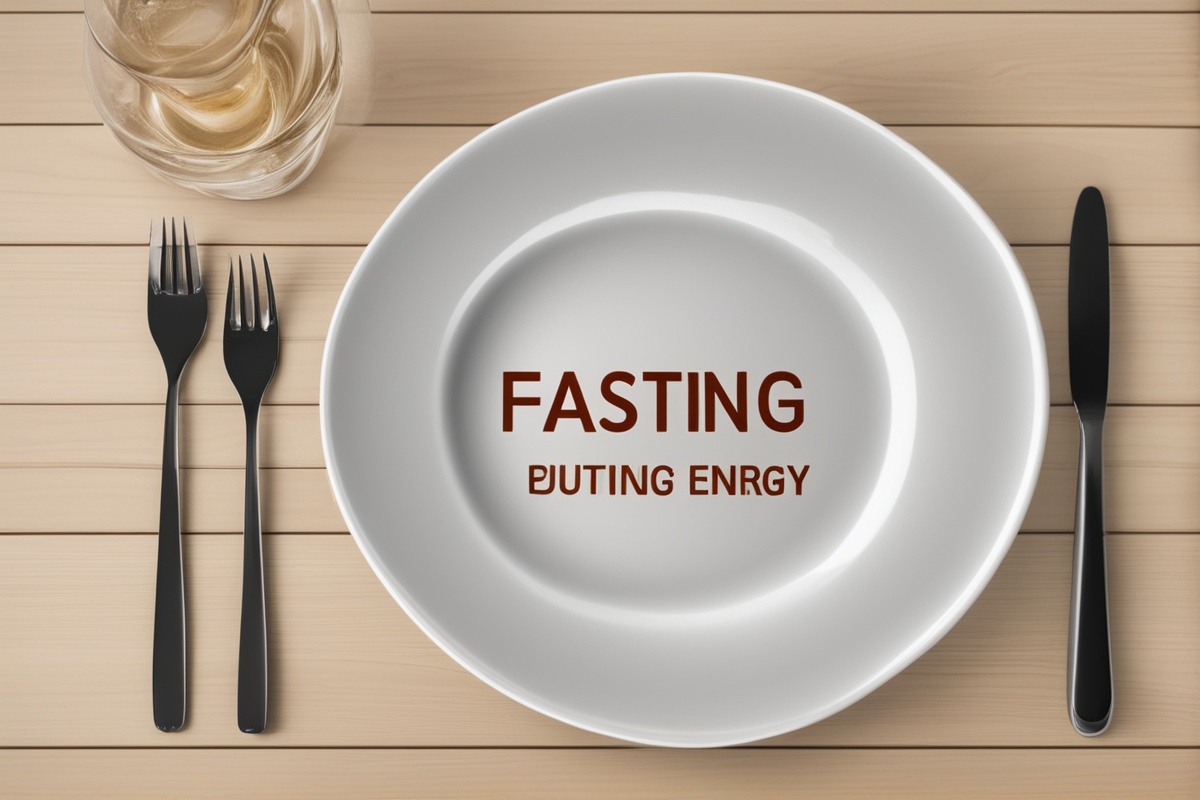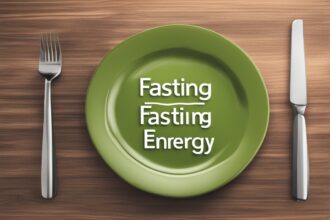Have you ever felt like your energy levels are stuck in a rut, no matter how much coffee you drink or how many hours you sleep? If so, fasting might just be the game-changer you’ve been searching for. Far from being a mere trend, fasting—whether intermittent fasting, water fasting, or other forms—has emerged as a powerful tool for enhancing energy, mental clarity, and overall vitality. In this deep dive, we’ll explore the incredible fasting benefits for energy, backed by science, and share practical tips to help you harness this ancient practice for modern-day wellness. Let’s unpack how skipping a meal (or a few) could actually fuel your body and mind in ways you never imagined.
What Is Fasting, and How Does It Relate to Energy?
Fasting is the voluntary abstinence from food and, in some cases, drink for a specific period. It’s a practice rooted in cultural, religious, and health traditions across the globe, from Ramadan to therapeutic fasting in medical settings. But how does fasting tie into energy? At its core, fasting shifts your body’s fuel source. When you eat, your body relies on glucose from carbohydrates for quick energy. During a fast, once glucose stores are depleted, your body taps into stored fats through a process called ketosis, producing ketones as an alternative energy source for the brain and body (Mattson et al., 2018). This metabolic switch doesn’t just sustain you—it can supercharge your energy levels, leaving you feeling lighter and more focused. Many who practice fasting report a paradoxical boost in stamina, despite the absence of food. Let’s explore why this happens and how fasting benefits extend to both physical and mental energy.
The Science Behind Fasting Benefits for Energy
The connection between fasting and energy isn’t just anecdotal; it’s grounded in science. When you fast, your body undergoes several physiological changes that optimize energy use. First, fasting triggers autophagy, a cellular “clean-up” process where damaged cells are recycled, improving mitochondrial efficiency—the powerhouses of your cells (Bagherniya et al., 2018). Better mitochondria mean more efficient energy production. Second, fasting reduces insulin levels, allowing your body to burn fat more effectively for fuel, which provides a steadier energy supply compared to the spikes and crashes of sugar-driven metabolism (Anton et al., 2018). Additionally, fasting increases levels of brain-derived neurotrophic factor (BDNF), a protein that supports brain health and enhances mental clarity, often described as a “mental energy” boost (Mattson et al., 2018). These fasting advantages aren’t just temporary—they can reshape how your body and mind perform long-term.
Physical Energy: How Fasting Fuels Your Body
One of the most surprising fasting benefits
Here are some practical ways fasting can boost your physical energy:
- Improved metabolic flexibility: Your body learns to switch between fuel sources, preventing energy dips.
- Reduced digestive burden: Without constant food intake, your digestive system gets a break, freeing up energy for other functions.
- Enhanced fat-burning: Access to stored fat provides a longer-lasting energy reserve during physical activity.
- Decreased inflammation: Less systemic inflammation means less physical fatigue and discomfort.
Mental Energy and Focus: A Hidden Fasting Perk
Beyond the body, fasting works wonders for the mind. Ever experienced brain fog after a carb-heavy lunch? Fasting can clear that mental haze. As your body produces ketones during a fast, these molecules cross the blood-brain barrier and serve as a highly efficient fuel for your brain, often leading to sharper focus and heightened alertness (Cahill, 2006). Research also suggests that fasting boosts neuroplasticity—the brain’s ability to adapt and form new connections—through increased BDNF levels, which can enhance cognitive performance (Mattson et al., 2018). For those practicing intermittent fasting, this often translates into better productivity and a sense of mental “lightness.” The fasting benefits for energy aren’t just about staying awake—they’re about thriving mentally in a fast-paced world.
Practical Tips to Maximize Energy During Fasting
While the health benefits of fasting are impressive, diving in without a plan can sometimes lead to low energy, especially if you’re new to it. The key is to fast smartly, ensuring your body and mind are supported. Whether you’re trying a 16:8 intermittent fasting schedule (16 hours fasting, 8 hours eating) or a longer water fast, preparation and mindfulness can make all the difference. I’ve personally found that easing into fasting, rather than jumping into a multi-day fast, helps maintain energy levels while my body adjusts. Below are some actionable tips to help you experience the energy-boosting fasting advantages without the dreaded slump.
- Stay hydrated: Dehydration can mimic fatigue, so drink plenty of water during fasting windows—add electrolytes if needed.
- Start small: Begin with a 12:12 fasting schedule before progressing to longer fasts to let your body adapt.
- Time your workouts: Exercise during your fasting window to tap into fat-burning mode, but keep intensity moderate if you’re new to fasting.
- Break your fast wisely: Choose nutrient-dense foods like lean proteins, healthy fats, and veggies to avoid energy crashes.
- Listen to your body: If you feel overly fatigued, shorten your fasting window or consult a healthcare professional.
Potential Challenges and How to Overcome Them
Let’s be real—fasting isn’t always a walk in the park, especially when it comes to energy. Some people experience initial fatigue, irritability, or hunger pangs as their body adjusts to a new rhythm. This is often temporary and tied to the transition from glucose to fat-burning metabolism. Low blood sugar can also play a role in feeling drained during the first few days of fasting (Anton et al., 2018). The good news? These hurdles are manageable with the right approach. Patience is key—your body needs time to adapt to the fasting benefits for energy. Keep a journal to track how you feel, and don’t hesitate to tweak your fasting style if something isn’t working. Over time, most people find that the initial dips give way to sustained vitality. If challenges persist, consider speaking with a dietitian to ensure fasting aligns with your unique health needs.
In wrapping up, it’s clear that the fasting benefits for energy are more than just hype—they’re a scientifically supported pathway to revitalizing your body and mind. From enhanced fat-burning and mitochondrial efficiency to sharper focus through ketone production, fasting offers a unique way to tap into your body’s natural reserves. Whether you’re looking to power through a busy workday or simply feel more alive, incorporating fasting into your routine could be the reset you need. Remember to start slow, stay hydrated, and listen to your body as you explore this transformative practice. Have you tried fasting yet? Drop a comment with your experience—I’d love to hear how it’s impacted your energy levels!
References
- Anton, S. D., Moehl, K., Donahoo, W. T., Marosi, K., Lee, S. A., Mainous, A. G., … & Mattson, M. P. (2018). Flipping the metabolic switch: Understanding and applying the health benefits of fasting. Obesity, 26(2), 254-268. https://doi.org/10.1002/oby.22065
- Bagherniya, M., Butler, A. E., Barreto, G. E., & Sahebkar, A. (2018). The effect of fasting or calorie restriction on autophagy induction: A review of the literature. Ageing Research Reviews, 47, 183-197. https://doi.org/10.1016/j.arr.2018.08.004
- Cahill, G. F. (2006). Fuel metabolism in starvation. Annual Review of Nutrition, 26, 1-22. https://doi.org/10.1146/annurev.nutr.26.061505.111258
- Faris, M. A., Kacimi, S., Al-Kurd, R. A., Fararjeh, M. A., Bustanji, Y. K., Mohammad, M. K., & Salem, M. L. (2012). Intermittent fasting during Ramadan attenuates proinflammatory cytokines and immune cells in healthy subjects. Nutrition Research, 32(12), 947-955. https://doi.org/10.1016/j.nutres.2012.06.021
- Mattson, M. P., Moehl, K., Ghena, N., Schmaedick, M., & Cheng, A. (2018). Intermittent metabolic switching, neuroplasticity and brain health. Nature Reviews Neuroscience, 19(2), 63-80. https://doi.org/10.1038/nrn.2017.156
- Tinsley, G. M., & La Bounty, P. M. (2015). Effects of intermittent fasting on body composition and clinical health markers in humans. Nutrition Reviews, 73(10), 661-674. https://doi.org/10.1093/nutrit/nuv041






